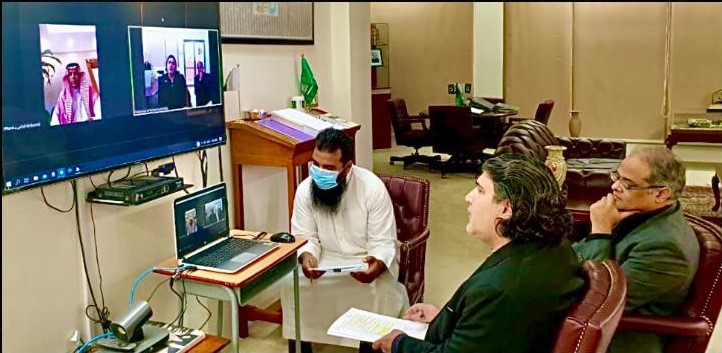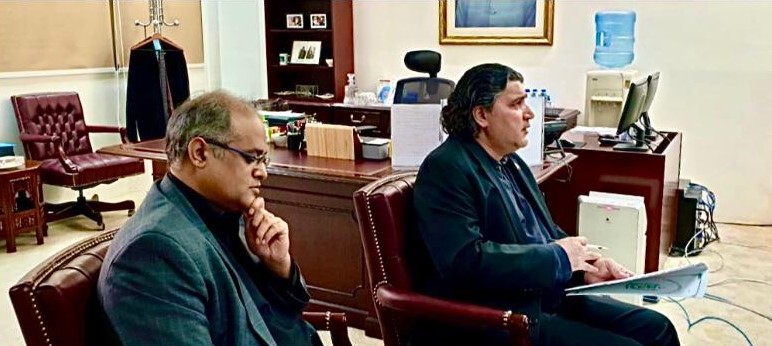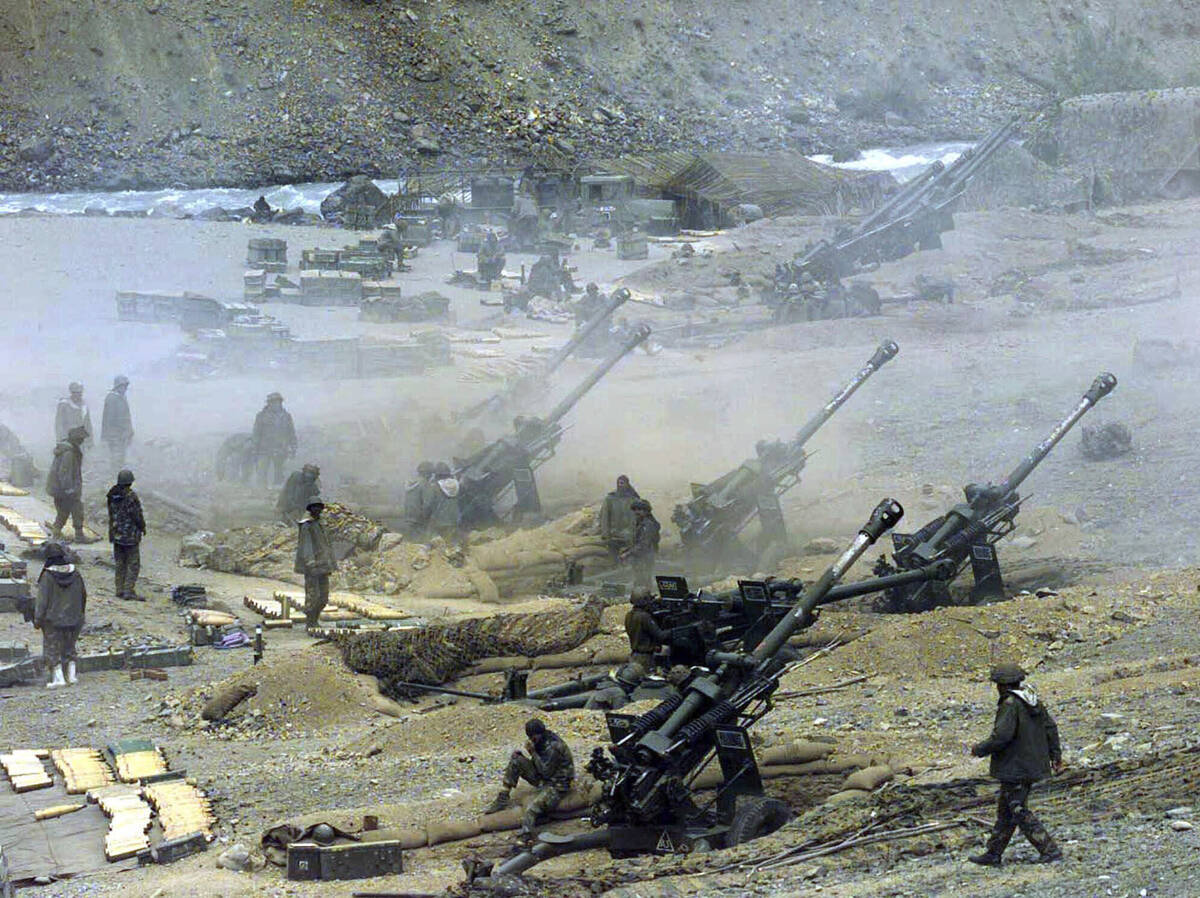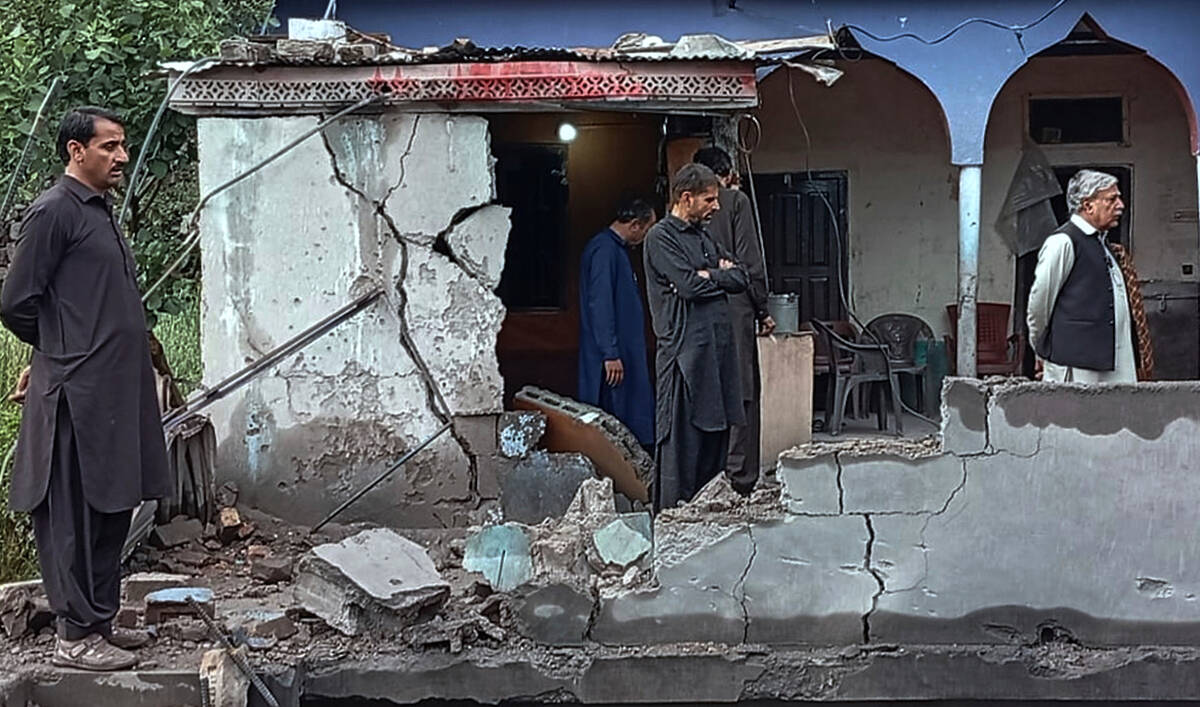ISLAMABAD: The ambassador of Pakistan to Saudi Arabia has held a virtual meeting with the director of the Kingdom’s locust and migratory pest control center to discuss cooperation in fighting locust swarms that have been wreaking havoc on crops in the Middle East and Asia since last year, a statement from the ambassador’s office said on Tuesday.

Pakistani ambassador to Saudi Arabia Raja Ali Ejaz holds a virtual meeting with Muhammad Al-Shamrani, Director Locust and Migratory Pest Control Center, Kingdom of Saudi Arabia, to discuss cooperation against locat swarms, on July 7, 2020. (Photo Courtesy: Pakistan Embassy Riyadh)
Last year, Pakistan suffered its worst attack of locusts since 1993, for which the country was largely unprepared.
The United Nations’ Food and Agriculture Organization (FAO) estimates losses to agriculture from locusts this year could be as high as PKR 353 billion ($2.2 billion) for winter crops like wheat and potatoes and about PKR 464 billion for summer crops.

Pakistani ambassador to Saudi Arabia Raja Ali Ejaz holds a virtual meeting with Muhammad Al-Shamrani, Director Locust and Migratory Pest Control Center, Kingdom of Saudi Arabia, to discuss cooperation against locat swarms, on July 7, 2020. (Photo Courtesy: Pakistan Embassy Riyadh)
A May update from the FAO warned it would be “imperative” to contain and control the desert locust infestation in the midst of the additional impacts of the COVID-19 pandemic on health, livelihoods, food security and nutrition for Pakistan’s most poor and vulnerable communities.
Pakistan has sought the help of friendly countries, including China and Saudi Arabia, to fight the locust invasion.
“Ambassador Raja Ali Ejaz held a virtual meeting with Muhammad Al-Shamrani, Director Locust and Migratory Pest Control Center, Kingdom of Saudi Arabia,” Ejaz’s office said in a statement. “The Ambassador appreciated the efforts of the Kingdom to address the challenge posed by the locust outbreak in the Kingdom.”
The two officials discussed ways to enhance cooperation among regional countries to control and mitigate the effects of the locust outbreak affecting countries in the Middle East and West and South Asia.
The locust swarms arrived in Pakistan from Iran in June 2019, devouring cotton, wheat and maize, among other crops.
The invasion was initially expected to subside by mid-November. But it has persisted due to favourable weather conditions for continued locust breeding, linked to global warming, according to FAO’s Pakistan office.
























